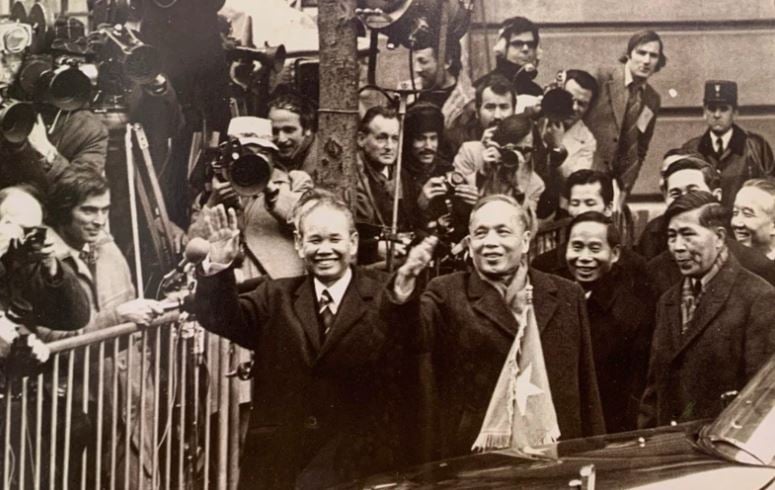 |
| The French people and overseas Vietnamese welcomed the delegation of the Democratic Republic of Vietnam to sign the official agreement in Paris, January 27, 1973. (Source: Central Party Office Archives) |
First of all, the wise leadership of our Party has opened up a diplomatic front, promoted the strengths of diplomacy, coordinated political and military fronts; closely led and directed, unified the fronts, "both fought and negotiated", created a combined strength, and achieved total victory.
The second lesson is the steadfastness in the foreign policy of independence and self-reliance, for the benefit of the nation and people; the correct application of Ho Chi Minh's diplomatic motto "remaining constant, responding to all changes", creating opportunities, drawing the enemy into negotiations, proactively launching diplomatic attacks and ending negotiations when conditions are ripe; harmoniously handling relations with major countries, while gaining broad international support for our people's resistance to achieve the victory of the Paris Conference.
Third is the lesson on the importance of real strength. Uncle Ho taught: “Real strength is the gong, diplomacy is the sound. The bigger the gong, the louder the sound”. The victory of the Paris Conference originated from victories on the battlefield, from the constant growth of our position and strength in the resistance war against the US, to save the country. That is the strength of justice, the strength of the great national unity bloc under the wise leadership of the Party and international support and assistance; the strength from the skillful combination of political, military and diplomatic fronts; between fighting and negotiating, between the battlefield and the negotiating table.
Fourth is the lesson of national solidarity and international solidarity. To overcome great challenges, national solidarity, international solidarity, combining national strength with the strength of the times is an extremely important way to ensure victory. The fight for national independence and national unification of our people was victorious because it brought into play the strength of national solidarity, the support and assistance of socialist countries, of peace-loving people around the world, and followed the teachings of President Ho Chi Minh: "Unity, solidarity, great solidarity / Success, success, great success".
Fifth is the lesson of force building. From the Geneva Conference in 1954 to the Paris Conference, the diplomatic staff had grown remarkably, being well prepared and equipped in both foreign affairs knowledge and the art of negotiation. With close guidance, our Party and State selected and entrusted the most talented and excellent foreign affairs staff to participate in the two negotiating delegations, making a very important contribution to the success of the Paris Conference.
In his speech at the 50th Anniversary of the Paris Agreement on Ending the War and Restoring Peace in Vietnam, held in Hanoi on January 17, 2023, Foreign Minister Bui Thanh Son outlined six valuable lessons from the Paris Conference and the Paris Agreement.
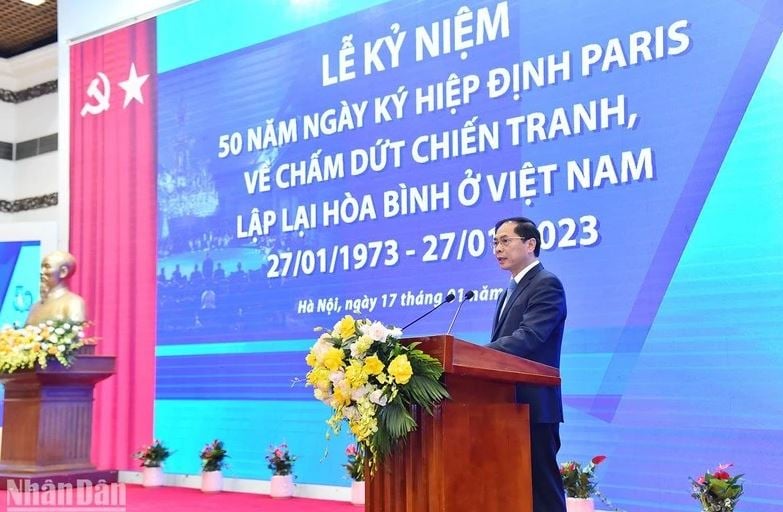 |
| Foreign Minister Bui Thanh Son delivered a speech at the ceremony. (Photo: Thuy Nguyen) |
The process of negotiating, signing and implementing the Paris Agreement is an extremely valuable book on Vietnam's foreign policy and diplomacy with many lessons that remain valuable forever, including lessons that have become the philosophy and viewpoints throughout the foreign policy of our Party and State in the cause of innovation, national development and national defense today. Minister Bui Thanh Son |
First of all, it is a lesson of steadfast independence, self-reliance, self-strengthening, and self-improvement for the benefit of the nation. This is both a consistent principle and a great lesson of the Vietnamese revolution in general and the diplomatic struggle at the Paris Conference in particular. Independence and self-reliance in every decision and every step have helped Vietnam always maintain the initiative in attack, steadfast in goals and principles but flexible in negotiation strategies, thereby always ensuring the highest national interests.
Second, the lesson of combining national strength with the strength of the times. National strength is the strength of holding high the banner of justice: peace, national independence, national sovereignty and territorial integrity; the strength of the Party's correct revolutionary guidelines and strategies; the strength of the great solidarity bloc, patriotic tradition, cultural identity and diplomacy of the nation; the strength from the skillful combination of political, military and diplomatic fronts, etc. The strength of the times is reflected in the common aspirations of nations and peoples for peace, development, respect for basic national rights, respect for justice and human dignity, etc. National strength combined with the solidarity, support and assistance of the people of the world has created a combined strength for the Vietnamese people to win in their just struggle.
Third, the lesson of being steadfast in goals and principles, yet flexible and mobile in strategies according to the motto “with unchangeable principles, responding to all changes”. Our goals and principles are national independence, national unification, and respect for national sovereignty as President Ho Chi Minh affirmed: “Vietnam is one, the Vietnamese people are one. Rivers may dry up, mountains may erode, but that truth will never change”. Our strategy is to “fight while negotiating”, be creative, and flexibly adjust according to each issue, each time, and each partner on the basis of steadfast strategic goals.
Fourth, lessons on the style, art of foreign affairs and diplomacy are imbued with Ho Chi Minh's ideology, style and art of diplomacy, such as lessons on research, correct assessment of the situation, "knowing oneself, knowing others", "knowing the times, knowing the situation"; on knowing how to win step by step to reach final victory; on creating and seizing opportunities; on skillfully combining strategy and tactics, between politics-military and diplomacy, between State diplomacy and Party diplomacy, people's diplomacy, between independence, autonomy and international solidarity, between the diplomatic forces of the North and the South, although two but one, although one but two,...
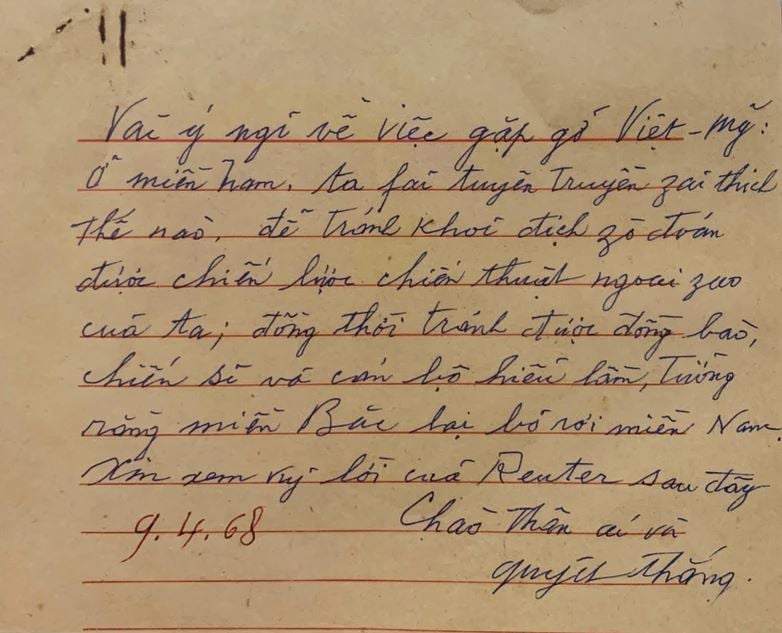 |
| President Ho Chi Minh's letter to the Politburo dated April 9, 1968, instructing on preparations for the Vietnam-US meeting before the Paris Conference. (Source: Ho Chi Minh Museum) |
Fifth, the lesson of proactively and actively building a diplomatic force, in which cadres are the key. From the reality of the Vietnamese revolution and with a strategic vision, our Party and President Ho Chi Minh soon directed the building of a cadre force for the struggle on the diplomatic front. From the Geneva Conference in 1954 to the Paris Conference, the Vietnamese diplomatic cadre team has grown remarkably, with revolutionary qualities, equipped with foreign affairs knowledge, methods, skills and the art of negotiation. Our Party and President Ho Chi Minh selected, trained and entrusted responsibilities to outstanding cadres to participate in the diplomatic front, making a very important contribution to the victory at the Paris Conference.
Sixth, the overarching lesson is the Party's unified and absolute leadership over the revolutionary cause of our people in general and the diplomatic front in particular. On the basis of creatively applying Marxism-Leninism, promoting the nation's tradition of defending the country and Ho Chi Minh's thought, accurately assessing the revolutionary practice in the country and the international situation, our Party has proposed correct revolutionary policies, lines and strategies, opening up a proactive diplomatic front, closely coordinating and unifying with the political and military fronts, "both fighting and negotiating", creating a combined strength to achieve total victory.
Foreign Minister Bui Thanh Son affirmed that, in addition to the outstanding lessons mentioned above, there are many rich lessons from the Paris Conference, especially lessons on style, method and art of diplomacy, which need to continue to be researched, evaluated and summarized to pass on to present and future generations.
Source: https://huengaynay.vn/chinh-tri-xa-hoi/theo-dong-thoi-su/hoi-nghi-paris-va-hiep-dinh-paris-1973-de-lai-nhung-bai-hoc-sau-sac-gi-152845.html


![[Photo] Many people in Hanoi welcome Buddha's relics to Quan Su Pagoda](https://vphoto.vietnam.vn/thumb/1200x675/vietnam/resource/IMAGE/2025/5/13/3e93a7303e1d4d98b6a65e64be57e870)
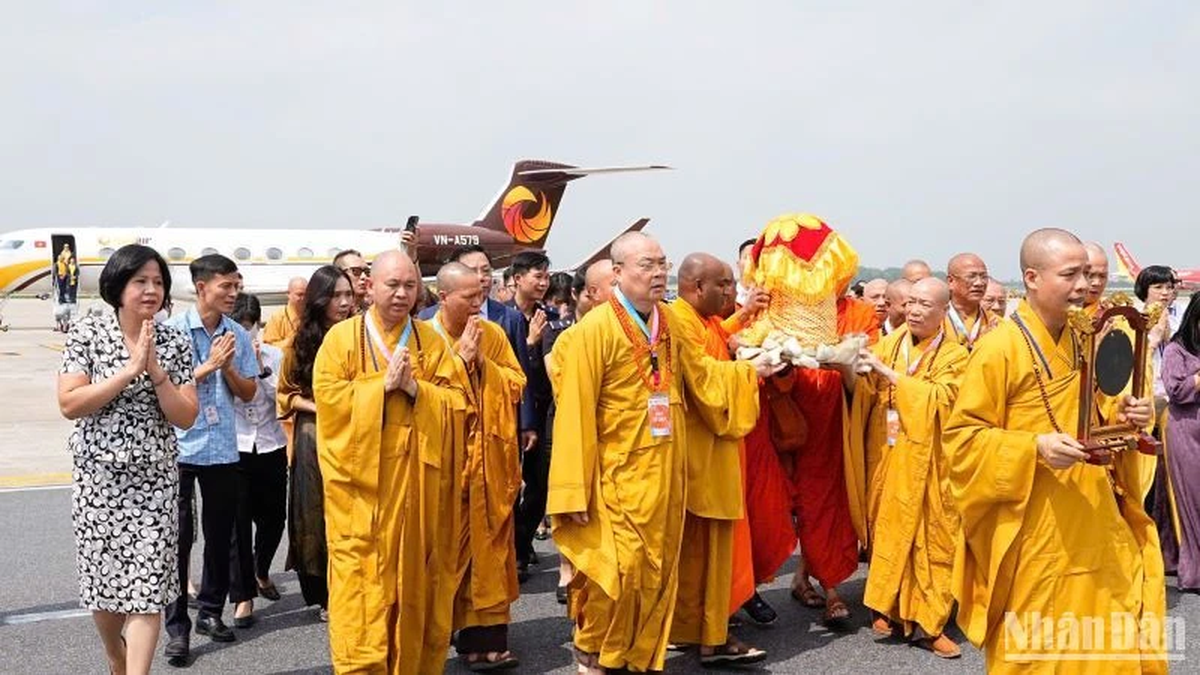
![[Photo] Prime Minister Pham Minh Chinh receives Ambassador of the French Republic to Vietnam Olivier Brochet](https://vphoto.vietnam.vn/thumb/1200x675/vietnam/resource/IMAGE/2025/5/13/f5441496fa4a456abf47c8c747d2fe92)

![[Photo] President Luong Cuong awarded the title "Heroic City" to Hai Phong city](https://vphoto.vietnam.vn/thumb/1200x675/vietnam/resource/IMAGE/2025/5/13/d1921aa358994c0f97435a490b3d5065)
![[Photo] President Luong Cuong attends the inauguration of the international container port in Hai Phong](https://vphoto.vietnam.vn/thumb/1200x675/vietnam/resource/IMAGE/2025/5/13/9544c01a03e241fdadb6f9708e1c0b65)
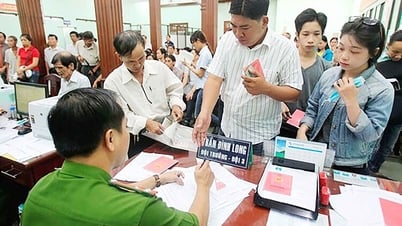
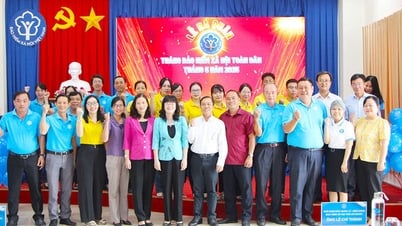
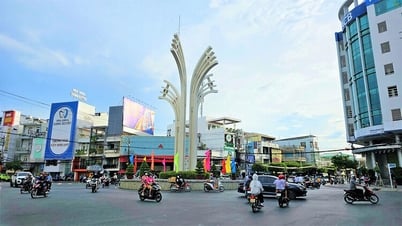
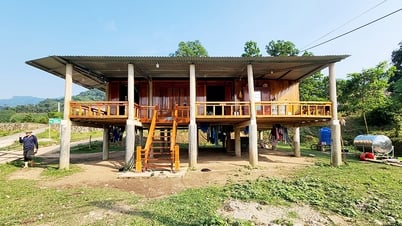
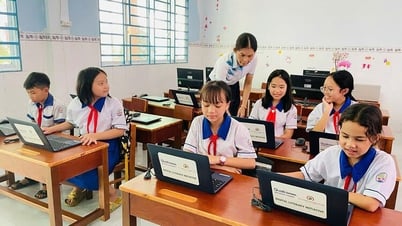
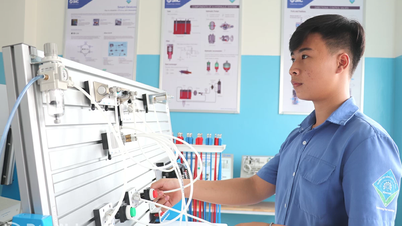





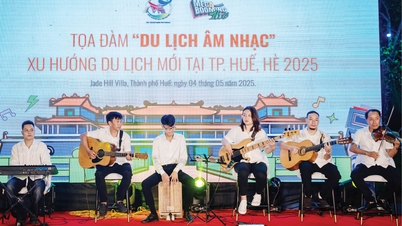
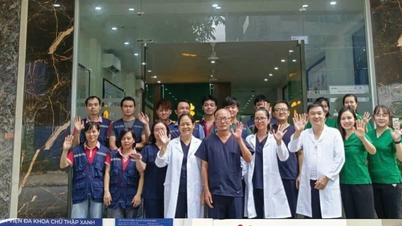

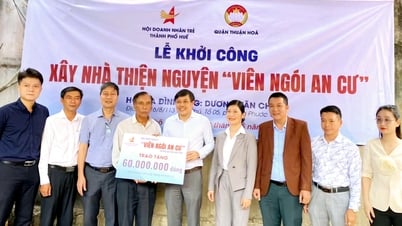
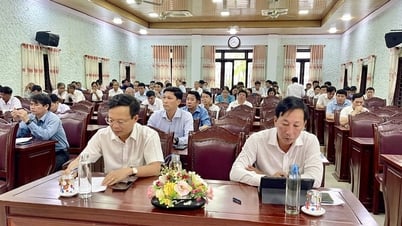

















































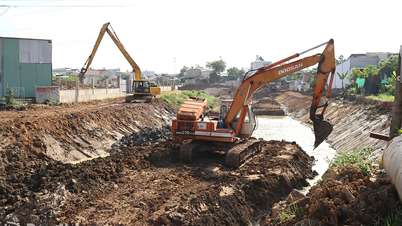

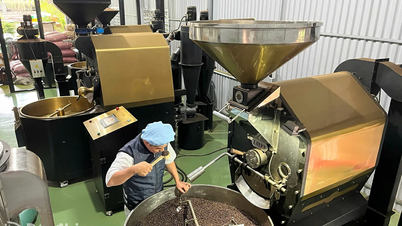


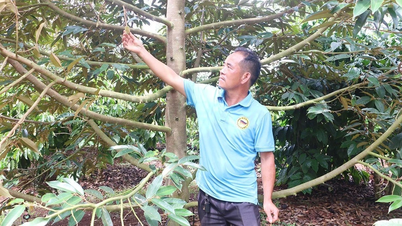


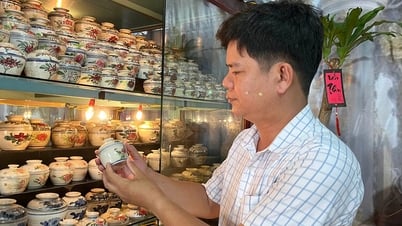









Comment (0)